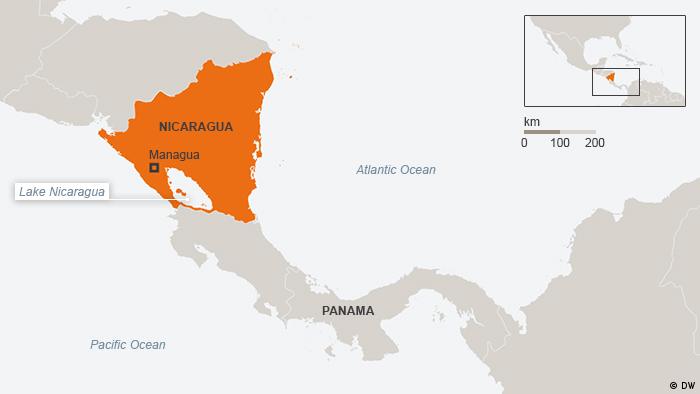Bilateral relations
China to build Panama Canal rival
A Chinese tycoon has managed to push through Nicaragua's congress a bill granting his company the rights to build the country's largest-ever development project. However, experts see huge challenges ahead.
According to media reports, the legislation approved in the National Assembly dominated by President Daniel Ortega's Sandinista Front contains no specific route for the canal and virtually no details of its financing or economic viability. It simply grants the Hong Kong-based HKND Group, owned by Beijing-based entrepreneur Wang Jing, 50 years of exclusive rights to study the plan, build and operate a canal linking the Pacific and Caribbean in exchange for Nicaragua receiving a minority share of any profits. The projected cost of the canal is 40 billions dollars.
However, despite the expected business opportunities, the project bears plenty of risks for both the environment and international relations, said Karl-Dieter Hoffmann, head of the Latin American Studies Institute at the Catholic University of Eichstätt-Ingolstadt in a DW interview.
DW: Why is Nicaragua attempting to build this canal?
Karl-Dieter Hoffmann: There are mainly economic reasons behind this. Nicaragua is one of Latin America's poorest countries. Initially, the project had been turned down because of its enormous costs. However, Nicaraguan President Ortega now seems to have found in Wang Jing a wealthy investor backed the Chinese government. This has allowed him to push the controversial deal through the Nicaraguan congress and start the search for much-needed income sources.

Hoffmann believes there are geopolitical reasons behind China's decision to finance the canal's construction.
With the income generated by the canal, the government expects state finances to swell. It says it will then be in a stronger position to improve the standard of living in the country and tackle its development problems. And I think these expectations are not unjustified. Since the US handed over control of the canal more than a decade ago, Panama has been registering the highest economic growth rate in all of Latin America. The country's GDP grew by ten percent last year and thousands of jobs have been created.
How would China profit from the project?
At the moment, China is the second-largest user of the Panama Canal which is being expanded because of an increase in trade between Asia and the nations in the Western Hemisphere.
I believe there are not only economic but only geopolitical motives behind Beijing's backing of the Nicaraguan project. China is currently investing more in Latin America than any other country. It has even overtaken the US and Europe as South America's largest trading partner.
So it appears that the Chinese are now extending their economic might into Central America, where some of the countries still have diplomatic relations with Taipei instead of Beijing. So far, the Taiwanese government has managed to maintain such ties by investing heavily in development and infrastructure projects in the region. But Beijing's growing influence might cause this to change, just as in the case of Nicaragua's neighbor Costa Rica.
What effects would this have on global trade?
The viability of the canal project will depend on how maritime transportation develops over the next years. In the case of a global recession the new canal could trigger a cut-throat competition with the Panama Canal, since both of them would be vying to offer the lowest transit fees. Such a development would, in turn, have drastic repercussions on Chinese investment.
On the other hand, a Nicaraguan canal would also have an immediate impact on other forms of transportation such as rail freight, and even drive some companies out of business.
What are the risks involved?
The project bears all sorts of risks. First of all, no studies have been released neither on the feasibility of the canal, nor on its possible environmental impact. There is, for instance, no data on how construction would affect water supply in the region or even on how many locks the canal will have.
But there might also be political consequences. In order to build the canal, engineers would make partial use of Lake Nicaragua, but tapping the outflowing San Juan River could lead to a diplomatic dispute with Costa Rica. The Nicaraguan government seems to have been caught off guard by the project. This hasn't been a transparent process.

Hoffmann believes tapping the San Juan river could lead to a diplomatic dispute between Nicaragua and Costa Rica.
The Panama Canal was completed by the United States. What political message would a Chinese-built canal sent to the world?
Chinese President Xi Jinping returned from a Latin America tour a few days ago, but no word on the construction of the canal had been made public. So far, there has been no official reaction from the US government on the issue, but I believe that particularly members of the Republican Party will be alarmed by the Chinese constructing a canal so close to the US mainland, possibly affecting American interests in the region. For the first time in history, the United States would have a global competitor directly at its doorstep.
The interview was conducted by Gabriel Domínguez.
